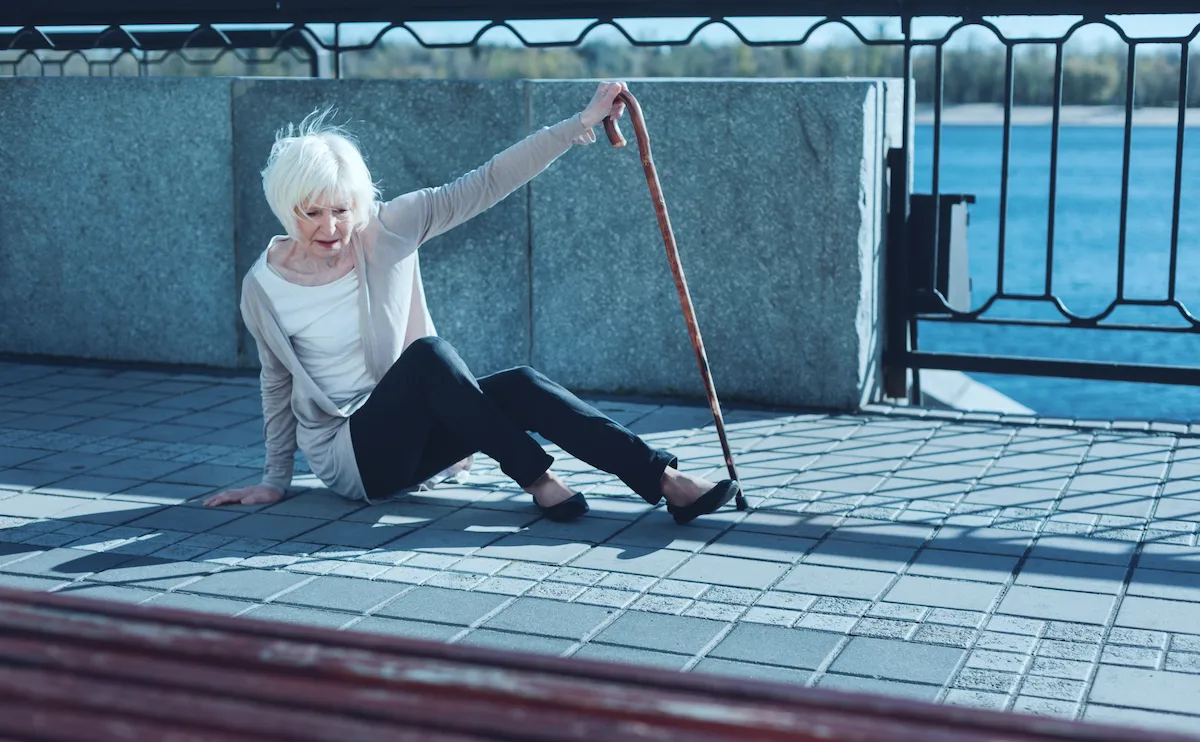What Causes Vertigo in Elderly? A Miami Senior’s Guide

Vertigo, that unsettling sensation of spinning or tilting, can be a common and disruptive experience for seniors. If you’re an older adult in Miami experiencing these dizzy spells, it’s crucial to understand the potential causes and seek appropriate medical attention.
This article delves into the common causes of vertigo in the elderly, explores associated symptoms, and provides guidance on diagnosis and treatment options available in Miami.
What Causes Vertigo in Elderly?
Vertigo is often caused by problems with the vestibular system, the intricate balance mechanism located in your inner ear. As we age, several factors can contribute to vestibular dysfunction and vertigo:
- Benign Paroxysmal Positional Vertigo (BPPV): This common cause of vertigo occurs when tiny calcium crystals in the inner ear become dislodged, triggering a spinning sensation with specific head movements.
- Age-Related Changes: The inner ear structures can naturally deteriorate with age, affecting balance and leading to dizziness.
- Medical Conditions: Conditions like stroke, Meniere’s disease (affecting the inner ear), or vestibular neuritis (inflammation of the vestibular nerve) can cause vertigo.
- Medications: Certain medications, especially those for blood pressure or heart conditions, can have dizziness as a side effect.
- Other Factors: Dehydration, low blood sugar, and even anxiety can contribute to dizziness in seniors.
Why Do I Get Dizzy When I Bend Over?
Feeling dizzy when bending over is a common complaint, especially among older adults. This can be due to:
- Orthostatic Hypotension: A sudden drop in blood pressure when you change positions, such as bending over and then standing up.
- Cervical Spondylosis: Age-related wear and tear in the neck vertebrae can sometimes compress blood vessels, leading to dizziness when bending over.
- Inner Ear Problems: BPPV or other inner ear conditions can trigger dizziness with specific head movements, including bending over.

How Long Can Vertigo Last?
The duration of vertigo episodes can vary significantly depending on the underlying cause:
- BPPV: Vertigo episodes typically last for a few seconds to minutes and are triggered by specific head movements.
- Vestibular Neuritis: Dizziness can last for days or even weeks, gradually improving as the inflammation subsides.
- Meniere’s Disease: Vertigo attacks can last for hours and are often accompanied by hearing loss and tinnitus (ringing in the ears).
Meds for Vertigo: Finding Relief
If you’re experiencing vertigo, your doctor might recommend medications to manage your symptoms:
- Antihistamines: Can help reduce dizziness and nausea.
- Anticholinergics: Can help suppress the activity of the vestibular system.
- Other Medications: Depending on the underlying cause, your doctor might prescribe medications to manage specific conditions like Meniere’s disease or migraines.
Vertigo Medication Over the Counter: Options for Mild Cases
For mild cases of vertigo, over-the-counter medications like meclizine (Antivert) or dimenhydrinate (Dramamine) can provide relief from dizziness and nausea. However, it’s essential to consult your doctor or pharmacist before taking any medication, especially if you have other health conditions or are taking other medications.
BPPV Test: Diagnosing a Common Cause
The Dix-Hallpike maneuver is a common test used to diagnose BPPV. It involves specific head movements to observe for characteristic eye movements (nystagmus) that indicate BPPV.
Primary Care Doctor in Miami: Your Partner in Managing Vertigo
If you’re experiencing vertigo in Miami, it’s important to consult with a primary care doctor. They can:
- Assess your symptoms and medical history.
- Perform a physical exam, including neurological and vestibular tests.
- Order additional tests, such as hearing tests or imaging studies, if needed.
- Recommend appropriate treatment options, including medication, physical therapy, or referral to a specialist.
Key Takeaways:
- Vertigo in the elderly can be caused by various factors, including BPPV, age-related changes, medical conditions, and medications.
- If you experience dizziness or vertigo, consult a primary care doctor in Miami for diagnosis and treatment.
- Medications and lifestyle changes can help manage vertigo symptoms.
Remember, this article is intended for informational purposes only and should not be considered a substitute for professional medical advice. If you have any concerns about your health or are experiencing vertigo, consult a qualified healthcare professional.
FAQs: What Causes Vertigo in Elderly?
- Is dizziness a normal part of aging? While some age-related changes can affect balance, frequent or severe dizziness is not a normal part of aging. If you’re experiencing dizziness in Miami, consult a primary care doctor to rule out any underlying medical conditions.
- What’s the difference between dizziness and vertigo? Dizziness is a general term for feeling lightheaded or unsteady. Vertigo, on the other hand, is a specific type of dizziness characterized by a spinning sensation, often accompanied by nausea or vomiting.
- Can certain medications worsen vertigo symptoms? Yes, some medications, especially those for blood pressure, heart conditions, or anxiety, can cause dizziness as a side effect. If you notice dizziness after starting a new medication, talk to your doctor.
- What are some home remedies for vertigo? For mild vertigo, try these remedies:
- Stay hydrated.
- Avoid caffeine and alcohol.
- Get enough rest.
- Practice balance exercises.
- Use ginger or peppermint to alleviate nausea.
- I’m experiencing frequent vertigo episodes. How can a primary care doctor in Miami help me? A primary care doctor at Hiriart & Lopez MD in Miami can evaluate your symptoms, perform tests to diagnose the cause of your vertigo, and recommend appropriate treatment options, which might include medication, physical therapy, or referral to a specialist.
Contact Us
Hiriart & Lopez MD, LLC
9950 SW 107th Ave STE 101,
Miami, FL 33176
305-274-8779
Phone: (305) 274-8779
Fax: (305) 274-0646
OPENING HOURS
Monday 7:30 AM–4:30 PM
Tuesday 7:30 AM–4:30 PM
Wednesday 7:30 AM–4:30 PM
Thursday 7:30 AM–4:30 PM
Friday 7:30–11 AM
Saturday Closed
Sunday Closed
OFFICE LOCATION
What Causes Vertigo in Elderly? A Miami Senior’s Guide

Vertigo, that unsettling sensation of spinning or tilting, can be a common and disruptive experience for seniors. If you’re an older adult in Miami experiencing these dizzy spells, it’s crucial to understand the potential causes and seek appropriate medical attention.
This article delves into the common causes of vertigo in the elderly, explores associated symptoms, and provides guidance on diagnosis and treatment options available in Miami.
What Causes Vertigo in Elderly?
Vertigo is often caused by problems with the vestibular system, the intricate balance mechanism located in your inner ear. As we age, several factors can contribute to vestibular dysfunction and vertigo:
- Benign Paroxysmal Positional Vertigo (BPPV): This common cause of vertigo occurs when tiny calcium crystals in the inner ear become dislodged, triggering a spinning sensation with specific head movements.
- Age-Related Changes: The inner ear structures can naturally deteriorate with age, affecting balance and leading to dizziness.
- Medical Conditions: Conditions like stroke, Meniere’s disease (affecting the inner ear), or vestibular neuritis (inflammation of the vestibular nerve) can cause vertigo.
- Medications: Certain medications, especially those for blood pressure or heart conditions, can have dizziness as a side effect.
- Other Factors: Dehydration, low blood sugar, and even anxiety can contribute to dizziness in seniors.
Why Do I Get Dizzy When I Bend Over?
Feeling dizzy when bending over is a common complaint, especially among older adults. This can be due to:
- Orthostatic Hypotension: A sudden drop in blood pressure when you change positions, such as bending over and then standing up.
- Cervical Spondylosis: Age-related wear and tear in the neck vertebrae can sometimes compress blood vessels, leading to dizziness when bending over.
- Inner Ear Problems: BPPV or other inner ear conditions can trigger dizziness with specific head movements, including bending over.

How Long Can Vertigo Last?
The duration of vertigo episodes can vary significantly depending on the underlying cause:
- BPPV: Vertigo episodes typically last for a few seconds to minutes and are triggered by specific head movements.
- Vestibular Neuritis: Dizziness can last for days or even weeks, gradually improving as the inflammation subsides.
- Meniere’s Disease: Vertigo attacks can last for hours and are often accompanied by hearing loss and tinnitus (ringing in the ears).
Meds for Vertigo: Finding Relief
If you’re experiencing vertigo, your doctor might recommend medications to manage your symptoms:
- Antihistamines: Can help reduce dizziness and nausea.
- Anticholinergics: Can help suppress the activity of the vestibular system.
- Other Medications: Depending on the underlying cause, your doctor might prescribe medications to manage specific conditions like Meniere’s disease or migraines.
Vertigo Medication Over the Counter: Options for Mild Cases
For mild cases of vertigo, over-the-counter medications like meclizine (Antivert) or dimenhydrinate (Dramamine) can provide relief from dizziness and nausea. However, it’s essential to consult your doctor or pharmacist before taking any medication, especially if you have other health conditions or are taking other medications.
BPPV Test: Diagnosing a Common Cause
The Dix-Hallpike maneuver is a common test used to diagnose BPPV. It involves specific head movements to observe for characteristic eye movements (nystagmus) that indicate BPPV.
Primary Care Doctor in Miami: Your Partner in Managing Vertigo
If you’re experiencing vertigo in Miami, it’s important to consult with a primary care doctor. They can:
- Assess your symptoms and medical history.
- Perform a physical exam, including neurological and vestibular tests.
- Order additional tests, such as hearing tests or imaging studies, if needed.
- Recommend appropriate treatment options, including medication, physical therapy, or referral to a specialist.
Key Takeaways:
- Vertigo in the elderly can be caused by various factors, including BPPV, age-related changes, medical conditions, and medications.
- If you experience dizziness or vertigo, consult a primary care doctor in Miami for diagnosis and treatment.
- Medications and lifestyle changes can help manage vertigo symptoms.
Remember, this article is intended for informational purposes only and should not be considered a substitute for professional medical advice. If you have any concerns about your health or are experiencing vertigo, consult a qualified healthcare professional.
FAQs: What Causes Vertigo in Elderly?
- Is dizziness a normal part of aging? While some age-related changes can affect balance, frequent or severe dizziness is not a normal part of aging. If you’re experiencing dizziness in Miami, consult a primary care doctor to rule out any underlying medical conditions.
- What’s the difference between dizziness and vertigo? Dizziness is a general term for feeling lightheaded or unsteady. Vertigo, on the other hand, is a specific type of dizziness characterized by a spinning sensation, often accompanied by nausea or vomiting.
- Can certain medications worsen vertigo symptoms? Yes, some medications, especially those for blood pressure, heart conditions, or anxiety, can cause dizziness as a side effect. If you notice dizziness after starting a new medication, talk to your doctor.
- What are some home remedies for vertigo? For mild vertigo, try these remedies:
- Stay hydrated.
- Avoid caffeine and alcohol.
- Get enough rest.
- Practice balance exercises.
- Use ginger or peppermint to alleviate nausea.
- I’m experiencing frequent vertigo episodes. How can a primary care doctor in Miami help me? A primary care doctor at Hiriart & Lopez MD in Miami can evaluate your symptoms, perform tests to diagnose the cause of your vertigo, and recommend appropriate treatment options, which might include medication, physical therapy, or referral to a specialist.
Contact Us
Hiriart & Lopez MD, LLC
9950 SW 107th Ave STE 101,
Miami, FL 33176
305-274-8779
Phone: (305) 274-8779
Fax: (305) 274-0646
OPENING HOURS
Monday 7:30 AM–4:30 PM
Tuesday 7:30 AM–4:30 PM
Wednesday 7:30 AM–4:30 PM
Thursday 7:30 AM–4:30 PM
Friday 7:30–11 AM
Saturday Closed
Sunday Closed

